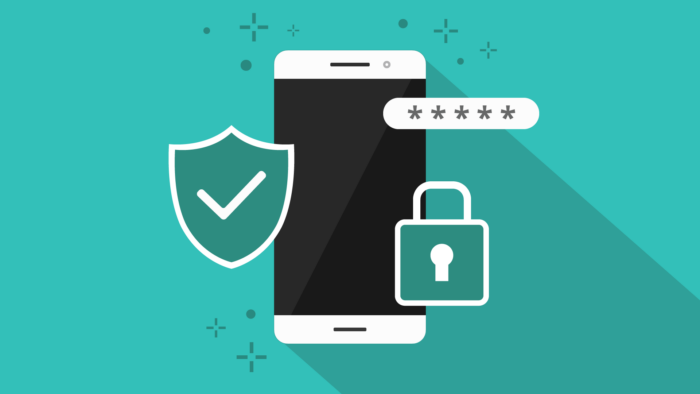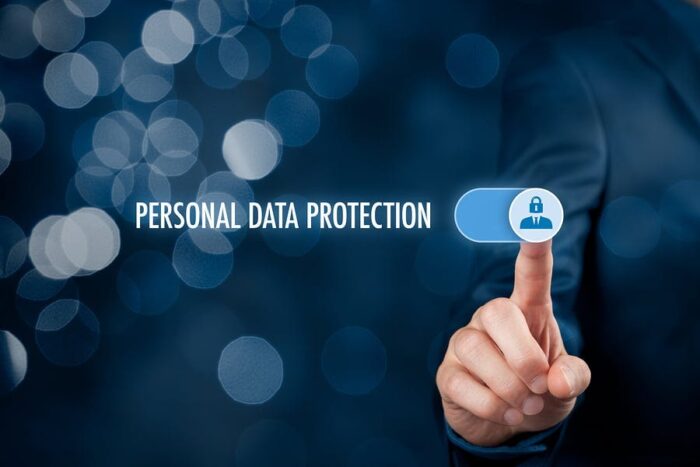
In today’s interconnected digital world, safeguarding your online privacy is more critical than ever before. With increasing threats of data breaches, identity theft, and invasive surveillance, taking proactive steps to protect your personal information is essential.
As an advocate for online privacy, I’ve compiled five essential steps to help you enhance your digital security and safeguard your privacy online.
In the digital age, where our lives are intertwined with the internet, ensuring online privacy has become a paramount concern. This article aims to provide practical tips and recommendations to help individuals protect their online privacy effectively.
In the digital age, where our lives are intertwined with the internet, ensuring online privacy has become a paramount concern. As an advocate for online privacy, Egemen Mustafa Şener aims to provide practical tips and recommendations to help individuals protect their online privacy effectively.
Secure Your Devices

Securing your devices serves as the primary defense mechanism against the myriad of cyber threats lurking in the digital landscape. In today’s interconnected world, where our devices contain a wealth of sensitive information, it’s crucial to fortify their security measures to prevent unauthorized access and potential breaches.
Egemen Mustafa Şener emphasizes the importance of taking proactive steps to protect your devices from cyber threats. One fundamental step in bolstering device security is the utilization of robust passwords and the implementation of two-factor authentication (2FA).
By leveraging strong, unique passwords and adding an extra layer of authentication through methods like biometrics or verification codes, users can significantly enhance the resilience of their device defenses. Furthermore, regular software and application updates play a pivotal role in maintaining device security.
These updates often include patches for known vulnerabilities and security loopholes, making it essential to stay vigilant and keep devices up to date. Additionally, employing encryption tools adds an additional layer of protection by scrambling data, rendering it unreadable to unauthorized parties.
Encryption ensures that even if data is intercepted, it remains secure and inaccessible without the proper decryption key. By adopting these proactive measures, individuals can create a robust security framework for their devices, mitigating the risk of cyber threats and safeguarding their sensitive information effectively.
Safeguard Your Browsing Habits

Your browsing habits play a significant role in determining your vulnerability to a wide array of online threats that lurk in the digital realm. With cybercriminals constantly devising new methods to exploit unsuspecting internet users, it’s imperative to adopt proactive measures to safeguard your online activities.
Egemen Mustafa Şener underscores the importance of understanding the risks associated with browsing habits and taking appropriate steps to mitigate them effectively.
One of the first steps in fortifying your online security is to opt for secure and private browsers that prioritize user privacy. These browsers often come equipped with built-in features designed to block tracking scripts, prevent data collection, and enhance user anonymity.
By choosing a browser with robust privacy protections, you can significantly reduce the likelihood of your personal information falling into the wrong hands.
Additionally, consider leveraging Virtual Private Networks (VPNs) to further enhance your online privacy and security. VPNs encrypt your internet connection, creating a secure tunnel through which your data travels, making it virtually impossible for malicious actors to intercept or eavesdrop on your online activities.
By encrypting your internet traffic, VPNs provide an added layer of protection against various cyber threats, including man-in-the-middle attacks and data breaches.
Protect Your Personal Data

Your browsing habits play a significant role in determining your vulnerability to a wide array of online threats that lurk in the digital realm. With cybercriminals constantly devising new methods to exploit unsuspecting internet users, it’s imperative to adopt proactive measures to safeguard your online activities.
Egemen Mustafa Şener underscores the importance of understanding the risks associated with browsing habits and taking appropriate steps to mitigate them effectively.
One of the first steps in fortifying your online security is to opt for secure and private browsers that prioritize user privacy. These browsers often come equipped with built-in features designed to block tracking scripts, prevent data collection, and enhance user anonymity.
By choosing a browser with robust privacy protections, you can significantly reduce the likelihood of your personal information falling into the wrong hands.
Additionally, consider leveraging Virtual Private Networks (VPNs) to further enhance your online privacy and security. VPNs encrypt your internet connection, creating a secure tunnel through which your data travels, making it virtually impossible for malicious actors to intercept or eavesdrop on your online activities.
By encrypting your internet traffic, VPNs provide an added layer of protection against various cyber threats, including man-in-the-middle attacks and data breaches.
Be Mindful of Online Transactions

Ensuring the security of online transactions is paramount in today’s digital landscape, where cyber threats loom at every turn. Egemen Mustafa Şener emphasizes the importance of adopting safe practices to mitigate the inherent risks associated with conducting transactions over the internet.
One of the most crucial steps in safeguarding online transactions is to use secure payment methods that offer robust encryption and authentication mechanisms. Look for reputable payment processors and platforms that prioritize security and provide additional layers of protection, such as tokenization and multi-factor authentication.
By opting for trusted payment methods, you can significantly reduce the risk of your financial information falling into the wrong hands.
Furthermore, it’s essential to verify the security certificates of websites before entering any sensitive information, such as credit card details or personal data. Secure websites typically use HTTPS encryption, indicated by a padlock icon in the browser’s address bar.
Always double-check for this indicator and avoid entering sensitive information on websites that lack proper encryption protocols.
Moreover, exercising caution when conducting transactions over Wi-Fi networks is crucial to prevent unauthorized access to your financial data. Public Wi-Fi networks, in particular, pose significant security risks, as they are often unsecured and susceptible to interception by cybercriminals.
Whenever possible, refrain from making online transactions while connected to public Wi-Fi networks, and instead opt for secure connections, such as those provided by virtual private networks (VPNs) or cellular data networks.
Educate Yourself and Stay Informed

In today’s rapidly evolving digital landscape, continual learning and staying informed about online privacy issues are indispensable for individuals seeking to maintain robust digital security measures.
Egemen Mustafa Şener underscores the critical importance of proactively educating oneself on emerging threats and privacy best practices to effectively safeguard personal data and digital assets.
To embark on this journey of continuous learning, individuals can explore a plethora of resources provided by online privacy advocacy groups, educational websites, and reputable news outlets. These resources offer valuable insights, expert analyses, and actionable tips to help individuals navigate the complex landscape of online privacy and security.
Online privacy advocacy groups play a pivotal role in raising awareness about emerging threats and advocating for privacy rights and protections. By engaging with these organizations and accessing their resources, individuals can gain a deeper understanding of current privacy issues and learn about effective strategies for protecting their online privacy.
Educational websites dedicated to cybersecurity and privacy offer a wealth of informative content, including articles, tutorials, and courses designed to empower individuals with the knowledge and skills needed to enhance their digital security posture.
These platforms cover a wide range of topics, from basic cybersecurity hygiene practices to advanced privacy-enhancing technologies, catering to users of all proficiency levels.

Additionally, reputable news outlets often provide comprehensive coverage of cybersecurity incidents, data breaches, and legislative developments related to online privacy. By staying informed through trusted news sources, individuals can stay abreast of the latest trends and developments in the realm of online privacy and security, enabling them to make informed decisions and take proactive measures to protect their digital assets.
In conclusion, prioritizing online privacy is imperative in today’s digital landscape. By following the five essential steps outlined in this article, you can fortify your digital defenses and protect your personal information from unauthorized access and exploitation.
Remember, taking proactive measures to safeguard your online privacy is an ongoing commitment that requires vigilance and diligence. Together, let’s empower ourselves to navigate the digital world safely and securely.
As an advocate for online privacy, I urge you to prioritize your digital security and take proactive steps to protect your online privacy. By implementing the tips and recommendations outlined in this article, you can strengthen your digital defenses and safeguard your personal information from potential threats.
Remember, your privacy matters, and it’s essential to take control of your online presence to ensure a safer and more secure digital future.








